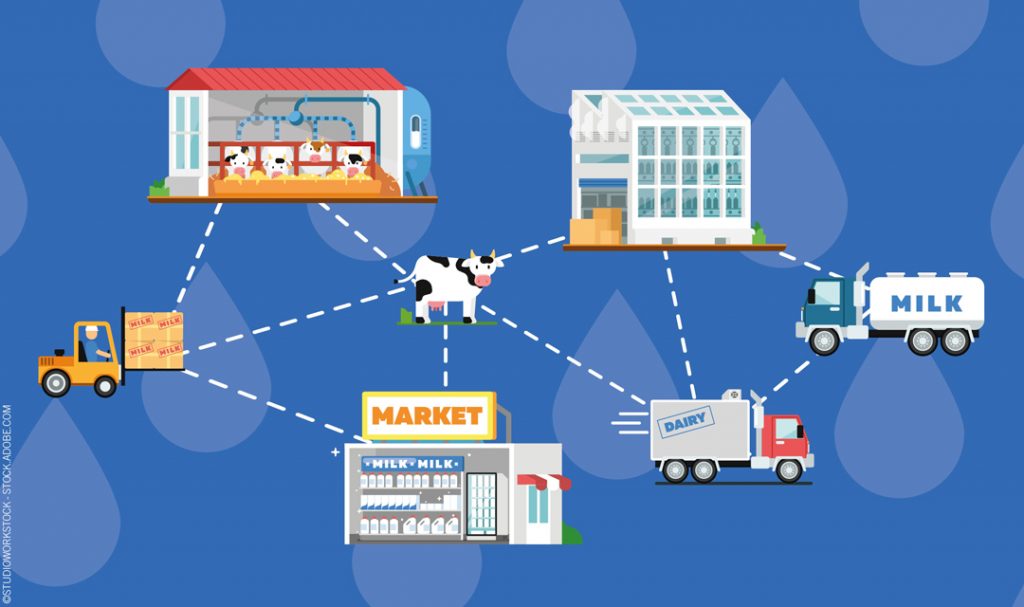USDA will conduct a comprehensive examination of U.S. food supply chains in an effort to improve and reimagine the supply chains for the production, processing, and distribution of agricultural commodities and food products.
The action is in response to President Biden’s March 2021 executive order 14017, which mandated federal action to secure and strengthen the country’s supply chains. As part of that order, USDA is expected to submit a report within a year that assesses agricultural and food supply chains.
“We have an opportunity to take the lessons we’ve learned from the COVID-19 pandemic and apply those to transforming our nation’s food system from the inside out, including our supply chains,” said Tom Vilsack, the U.S. secretary of agriculture, in an April 21 statement. “USDA plans to tackle this supply chain assessment holistically—looking across a full range of risks and opportunities.”
Among the items that will be considered are the needs of socially disadvantaged and small- to mid-size producers, sustainable practices to advance resilience and competitiveness, and the importance of local and regional food systems.
These, Vilsack noted, will position USDA to make “long-term, transformative changes for economic, national, and nutritional security.”
With that in mind, the goals of the effort will be to bolster local and regional food systems, create fairer and more competitive markets, support and promote consumer nutrition security (especially for low-income populations), and to address the increasing needs of socially disadvantaged and small- to mid-sized producers.
“USDA is undertaking this effort to strengthen U.S. competitiveness with attention to our farmers, ranchers, producers, food processors, and other important links in the food supply chain,” Vilsack said.
“Unanticipated ‘pandemic panic buying’ of food was a tremendous stress to the entire agri-food supply chain,” says Waylon Sharp, vice president of food and agriculture at Bureau Veritas North America, a food testing, inspecting, and certification service provider. “Typically, increased demand is coupled with inflationary price pressure, further challenging those who were already financially vulnerable. Additionally, such shocks have the follow-on impact of lessened product quality and/or food counterfeiting to meet demand.”
He adds that Biden’s proposal could bring stability in the form of consistent pricing, security in a more balanced import and domestic production strategy, and safety to ensure food integrity is maintained.
USDA is requesting public comment to inform its thinking regarding how stimulus relief programs and spending related to food supply chain resilience as authorized by the Consolidated Appropriations Act, 2021 and the American Rescue Plan Act of 2021 can help to increase durability and resilience within the U.S. food supply.
The deadline for comments is May 21, 2021. More information is available on USDA’s website and at Regulations.gov.



Leave a Reply